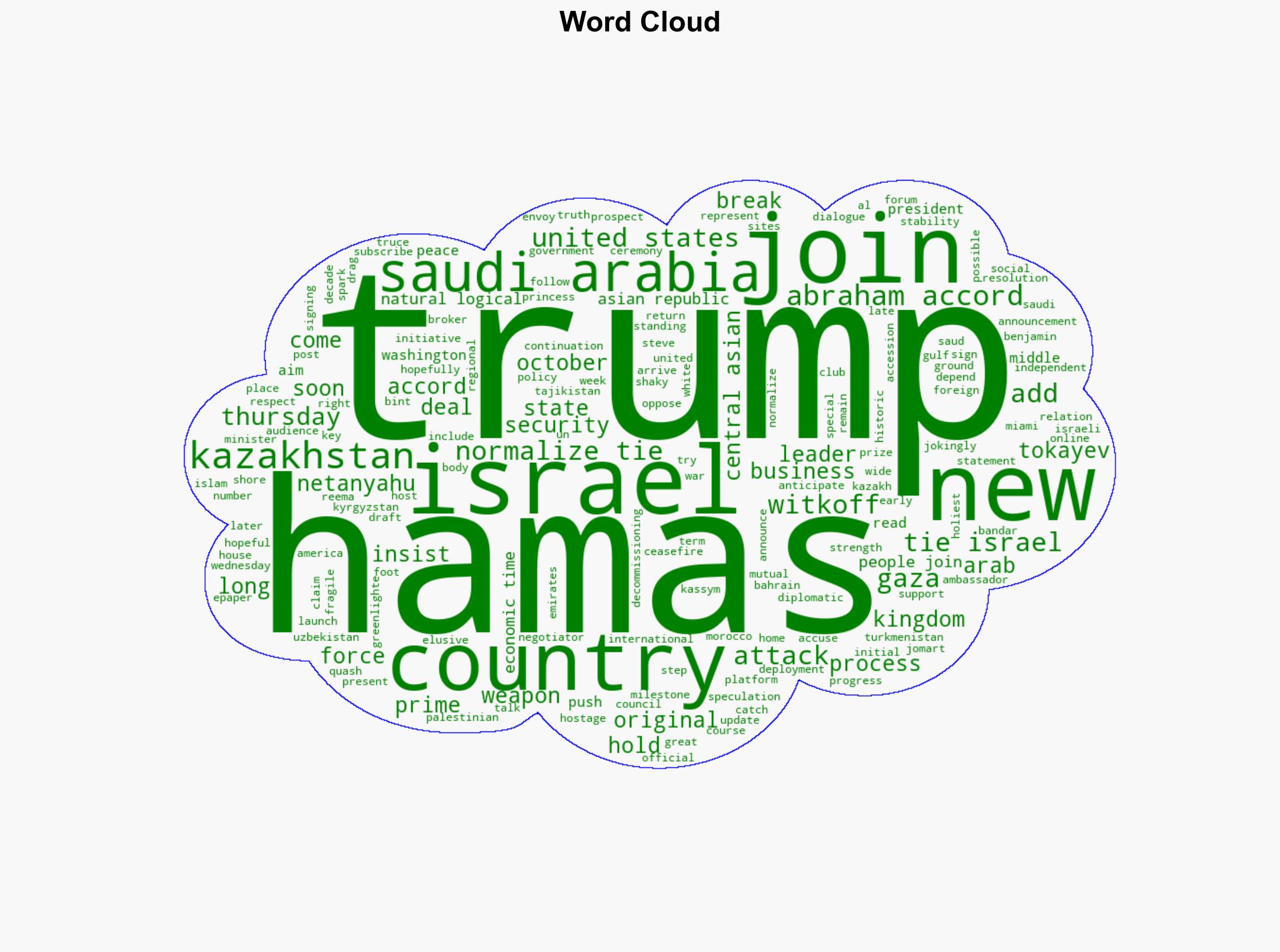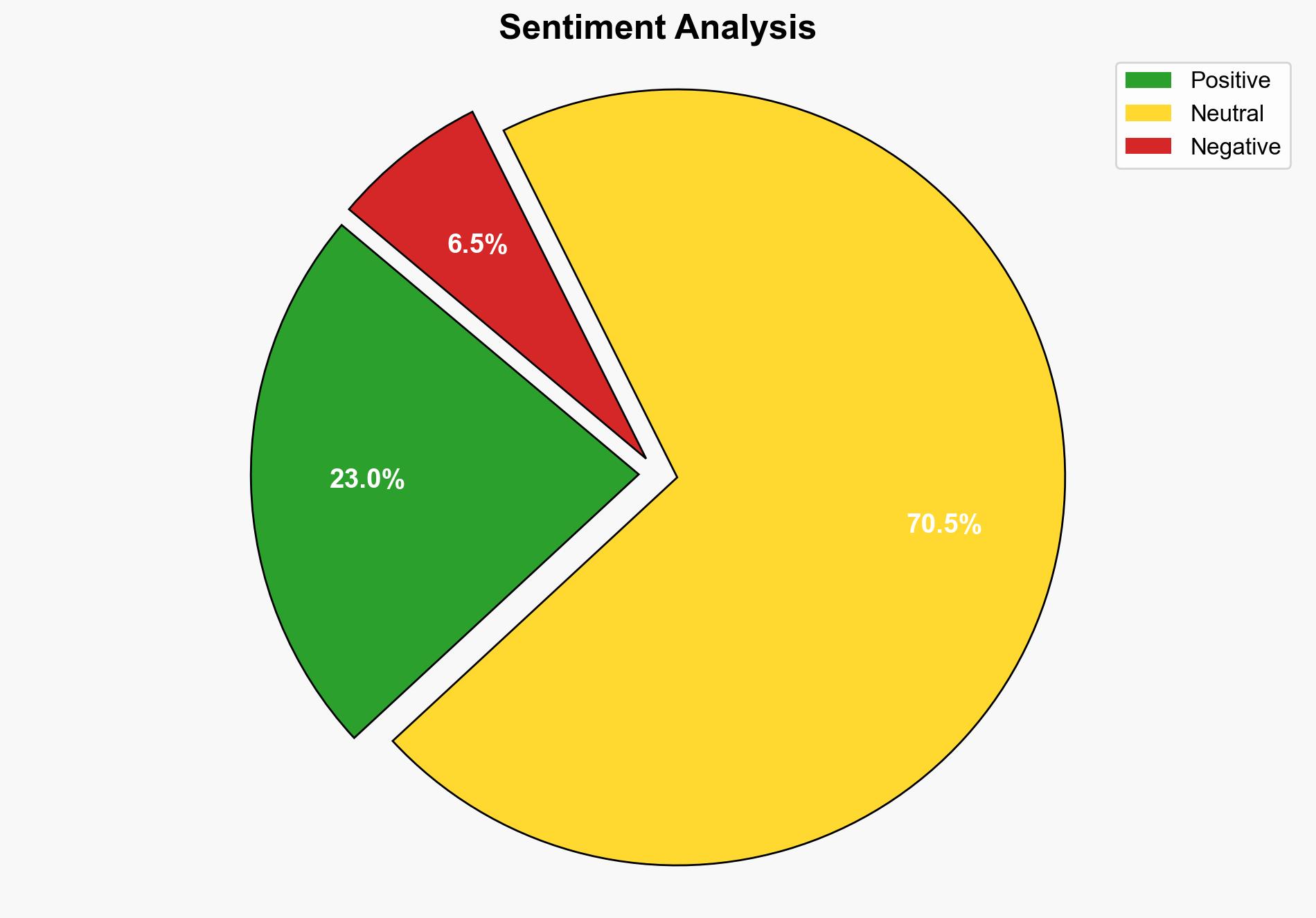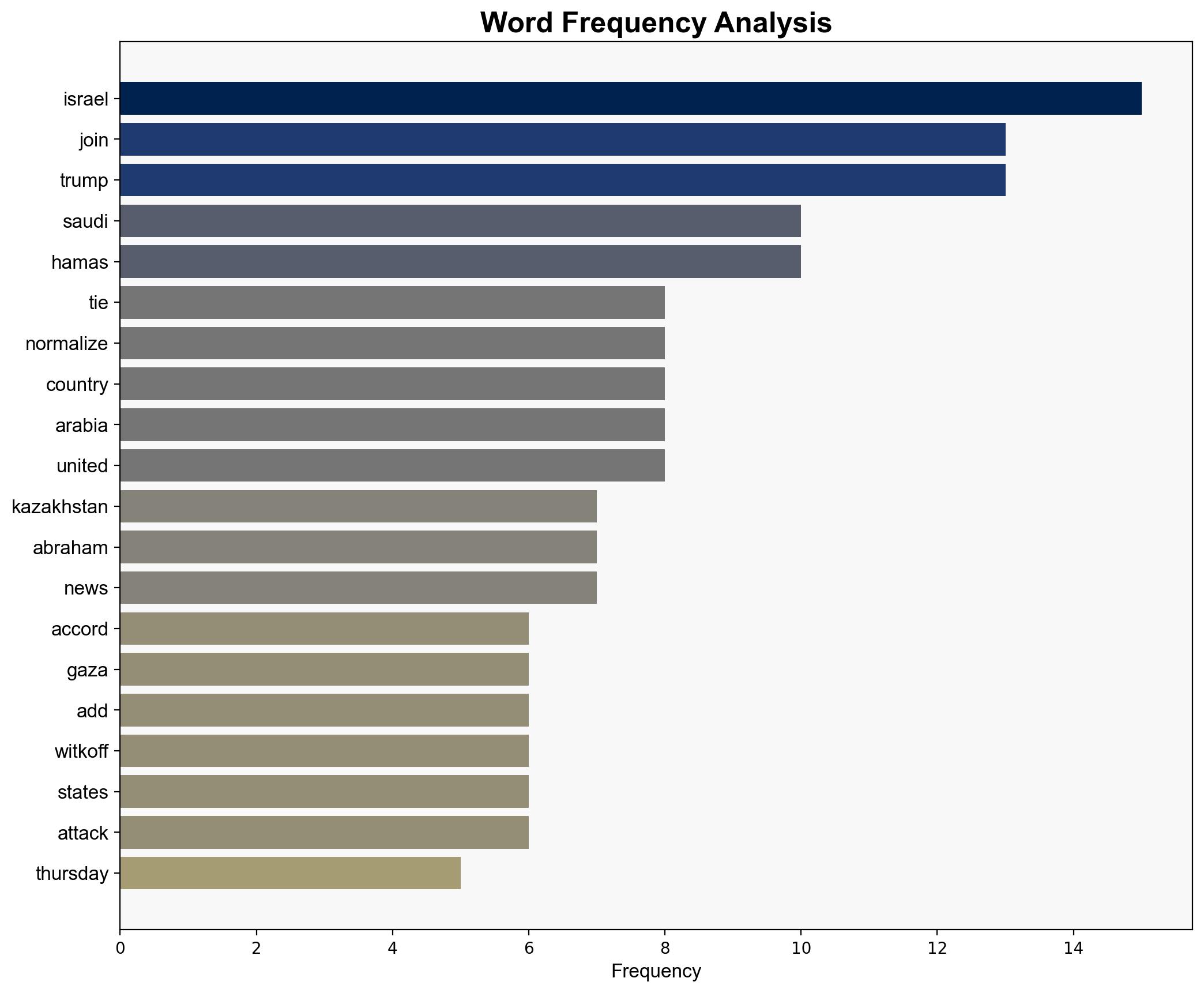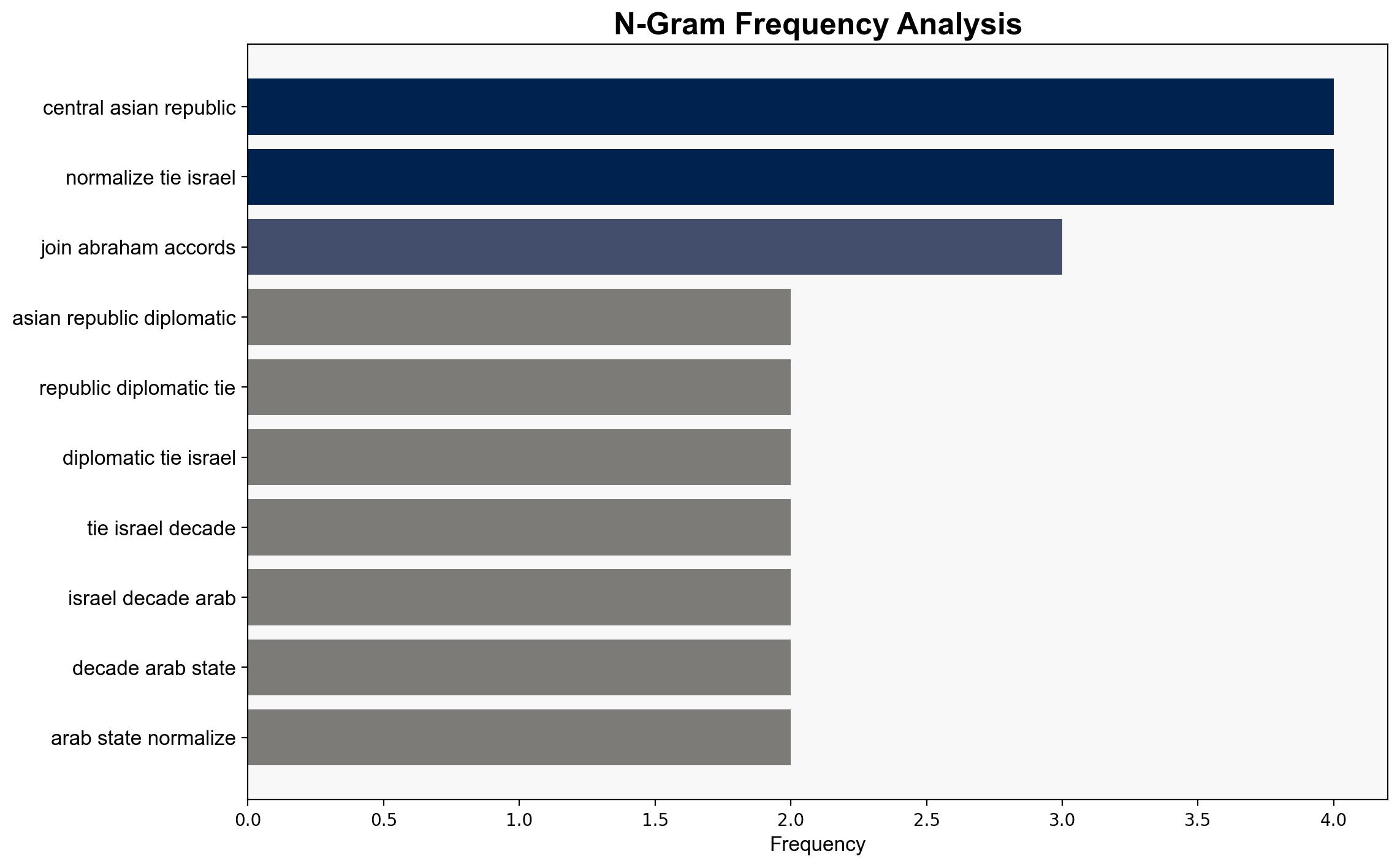Kazakhstan to join Abraham Accords as Trump pushes Mideast peace – The Times of India
Published on: 2025-11-07
Intelligence Report: Kazakhstan to join Abraham Accords as Trump pushes Mideast peace – The Times of India
1. BLUF (Bottom Line Up Front)
Kazakhstan’s potential accession to the Abraham Accords appears to be a strategic move to enhance its diplomatic profile and align with broader Middle Eastern peace initiatives. The hypothesis that Kazakhstan’s decision is primarily symbolic and aimed at strengthening ties with the U.S. and Israel is better supported. Confidence level: Moderate. Recommended action: Monitor Kazakhstan’s diplomatic engagements and regional reactions to assess shifts in geopolitical alliances.
2. Competing Hypotheses
1. Kazakhstan’s accession to the Abraham Accords is a strategic move to enhance its international diplomatic standing and align with U.S. and Israeli interests.
2. Kazakhstan’s decision is primarily driven by economic incentives and potential benefits from increased trade and investment opportunities with Israel and other signatory nations.
Using ACH 2.0, the first hypothesis is better supported due to Kazakhstan’s historical diplomatic ties with Israel and the symbolic nature of the move, as highlighted in the source. The second hypothesis lacks direct evidence of specific economic agreements or incentives tied to the Accords.
3. Key Assumptions and Red Flags
– Assumption: Kazakhstan’s foreign policy is driven by a desire for regional stability and international respect.
– Red Flag: Lack of detailed information on economic agreements or incentives tied to the Accords.
– Potential Bias: Overestimation of Kazakhstan’s influence in Middle Eastern geopolitics.
– Deception Indicator: The absence of explicit economic benefits raises questions about the true motivations behind the decision.
4. Implications and Strategic Risks
Kazakhstan’s accession could shift regional dynamics, potentially influencing other Central Asian nations. There is a risk of backlash from countries opposing normalization with Israel, which could lead to regional tensions. Economically, the move may not yield immediate benefits, but it positions Kazakhstan as a key player in broader peace initiatives.
5. Recommendations and Outlook
- Monitor Kazakhstan’s diplomatic activities for signs of deeper engagement with Middle Eastern countries.
- Assess regional reactions to gauge potential shifts in alliances.
- Scenario Projections:
- Best: Kazakhstan strengthens its international standing and fosters regional stability.
- Worst: Regional backlash leads to increased tensions and isolation.
- Most Likely: Kazakhstan maintains its diplomatic course with moderate gains in international influence.
6. Key Individuals and Entities
– Donald Trump
– Kassym-Jomart Tokayev
– Benjamin Netanyahu
– Steve Witkoff
– Princess Reema bint Bandar Al Saud
7. Thematic Tags
national security threats, geopolitical strategy, Middle East diplomacy, regional alliances





